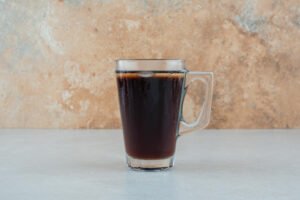Table of Contents
ToggleIt can be hard to appreciate or enjoy your morning coffee when there are so many myths surrounding what’s in your cup. Coffee is one of the most maligned beverages for its potential health risks but numerous scientific studies with strong data suggest otherwise. One day coffee is reported as being good for us, and the next day it is harmful. Another great illustration of how contradictory nutrition science sends inconsistent signals to the general public.
Here we dispel some of the most widespread coffee myths and fallacies to help you become a more informed customer of this deliciously bitter elixir.

Myth 1: Coffee is bad for your health
COFFEE is one of the most widely consumed psychoactive beverages on the planet.
Drinking a cup of coffee much the same as drinking or eating anything else involves absorbing a complex mixture of chemicals. When it comes to your health, coffee like other foods isn’t bad for you when consumed in moderation.
Myth 2: Dark Roast Coffee Beans Have More Caffeine

Contrary to popular belief, darker coffee does not necessarily signify that it is “stronger,” or that it contains more caffeine. Although the flavours of dark-roasted coffee are richer and bolder, it doesn’t have more caffeine.
It is important to note that heat accelerates chemical interactions, which means it also breaks down caffeine compounds. Light roasts don’t spend as much time cooking, so they actually contain more intact caffeine compounds than medium- or dark-roasted beans.
Therefore, it makes sense that the amount of caffeine a coffee bean contains when it is ground and brewed will decrease the longer the bean is roasted.
Myth 3: Storing Coffee in the Fridge Makes It Last Longer
Storing your coffee in the refrigerator actually exposes your coffee to moisture and odours and will result in a stale brew, even if the beans are stored whole. So no, cold storage in the fridge won’t make your coffee last longer. It pretty much has the opposite effect.
It’s best to store your beans in an airtight container for a reasonable amount of time in a dark, cool, dry place.
Myth 4: All Black coffee is Espresso

Espresso is coffee but not all coffee is espresso, this may be confusing considering that they have the same origin: coffee beans.
Now, although Espresso is a black coffee, black coffee cannot be called an espresso unless brewed by forcing hot water at high pressure through finely grounded coffee.
Because of the lower ground-to-water ratio, finer grind, and pressurized brewing process, espresso is richer and more potent than coffee. Regular coffee uses a coarser grind, more water and gravity to extract the final brew. So, compared to its close sibling, the Espresso is stronger, thicker, and more potent.
Myth 5: Cold Brew coffee is the same as Iced Coffee

Simply put, they aren’t!
Cold-brewed coffee means you use cold or room-temperature water to make a pot of coffee. Pour water over the grounds, and let it sit for 12 hours, or even overnight. The grounds infuse the water with a delicious, rich taste that’s perfect for making iced coffee in the summer. Many people appreciate the unique taste of the cold brew.
On the other hand, Iced coffee is brewed hot—using a standard coffee maker— cooled and served over ice. Certain light, floral notes can only be extracted using hot water, so iced coffee tends to have brighter (acidic) and more pronounced flavours than cold brew.






[…] says coffee needs to be hot!? Cold brews are taking cafes across the globe by storm. Iced beverages are extremely popular, and brewing them […]